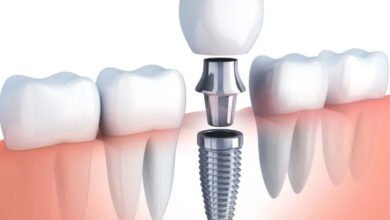Best Gynecologist On The Reasons For Pelvic Pain In Females

Regardless of sex, pelvic discomfort/pain is a common health complaint. Whether you have sudden or ongoing pelvic discomfort, best to consider talking to a health care provider. You may consider a physician. Such pain may develop due to urinary tract infections, appendicitis, or issues concerning the reproductive system.
This blog talks about what may lead to pelvic pain in females. The lower part of the torso, the pelvis, sits between the legs and abdomen, including the uterus, cervix, ovaries, vagina, vulva, etc. (in females). You may talk to the leading gynecologist in Siliguri to rule out the underlying cause of such recurrent pain.
What signs you may develop with pelvic pain
If you have an underlying health condition, you may get other signs, including:
- Heavy vaginal bleeding
- Frequent urination
- Burning sensation when you pee
- Heavy menstrual pain
- Passing blood clots during menstrual periods
- Rectal bleeding
- Painful intercourse
- Pain felt in your hip
- Constipation
- Fever, chills
Overlooking such pain with over-the-counter meds brings no actual solutions. Nothing could be so good as early health evaluation as it helps prevent future complications.
What reasons can be there?
Given below are possible reasons for females developing pelvic pain related to the reproductive system:
- Menstrual Pain. Sometimes, menstrual pain is tolerable, but sometimes not. What causes menstrual pain can be many. During the menstrual cycle, your uterus contracts in order to get rid of its lining. Hormone-like lipids known as prostaglandins make your uterus contract causing pain.
- Uterine Fibroids. These benign fibroids (tumorous growths) in your uterus may be the reasons for pelvic pain. Such fibroids develop during women’s childbearing years. Much remains unknown about the exact cause of it, however.
- Endometriosis. It’s a painful disorder in which endometrium-like tissue that lines up the uterus grows elsewhere in the uterus. Fertility issues are a common complication of this gynecological problem. And the most classic signs include ongoing pelvic pain.
- Sexually Transmitted Disease. STDs refer to infections that passed from person to person through sexual contact. Such contact involves oral, vaginal, or anal. Both men and women are equally likely to develop this condition. Unsafe sex or needle sharing can put one at risk.
- Pelvic Inflammatory Disease. Sexually transmitted infections mostly cause pelvic inflammatory diseases. STIs spread from the vagina to the uterus, fallopian tubes, or even ovaries. You may get lower abdominal pain, vaginal discharge, discharge involving green or yellow colors with an unusual odor, spotting, irregular periods, etc.
- Urinary Tract Infections. UTIs in the bladder or urethra can travel up to your kidneys, causing kidney infections. Here kidney infection is a further severe form of UTIs. A wide range of symptoms you may develop, such as frequent urination, painful urination, nighttime urination, inability to hold urine, lower abdominal/pelvic pain, fever, chills, bloody urine, etc. Consult the leading gynae doctor in Siliguri.
Medical care for pelvic pain rests on the reason causing it. If endometriosis accounts for such pain, your doctor sets a treatment approach based on that. In case, UTIs are responsible, your specialist treats UTIs so as to heal your urinary health and discomforts. Possible treatment options can be medications, lifestyle modifications, surgery, or physical therapy.





